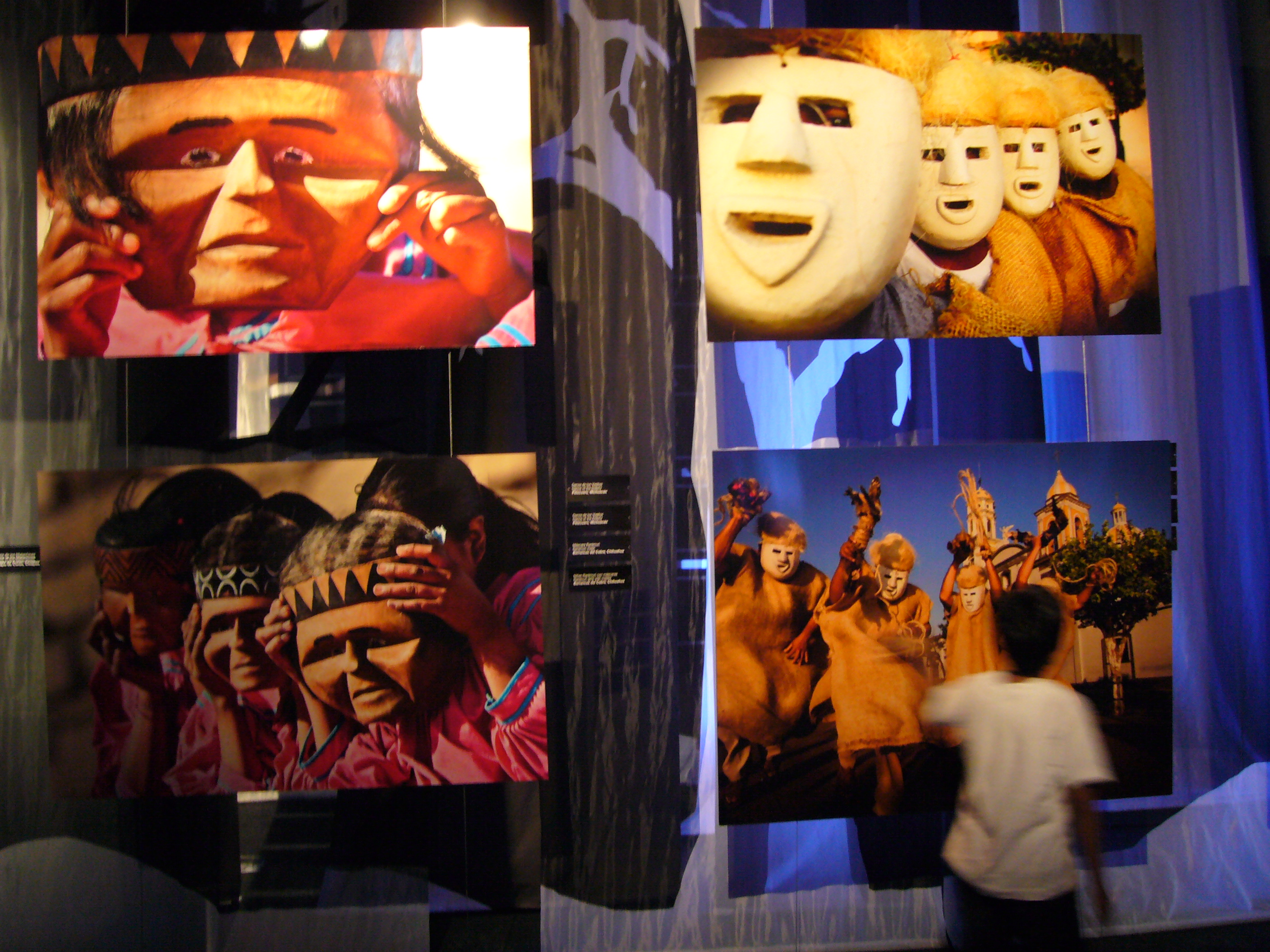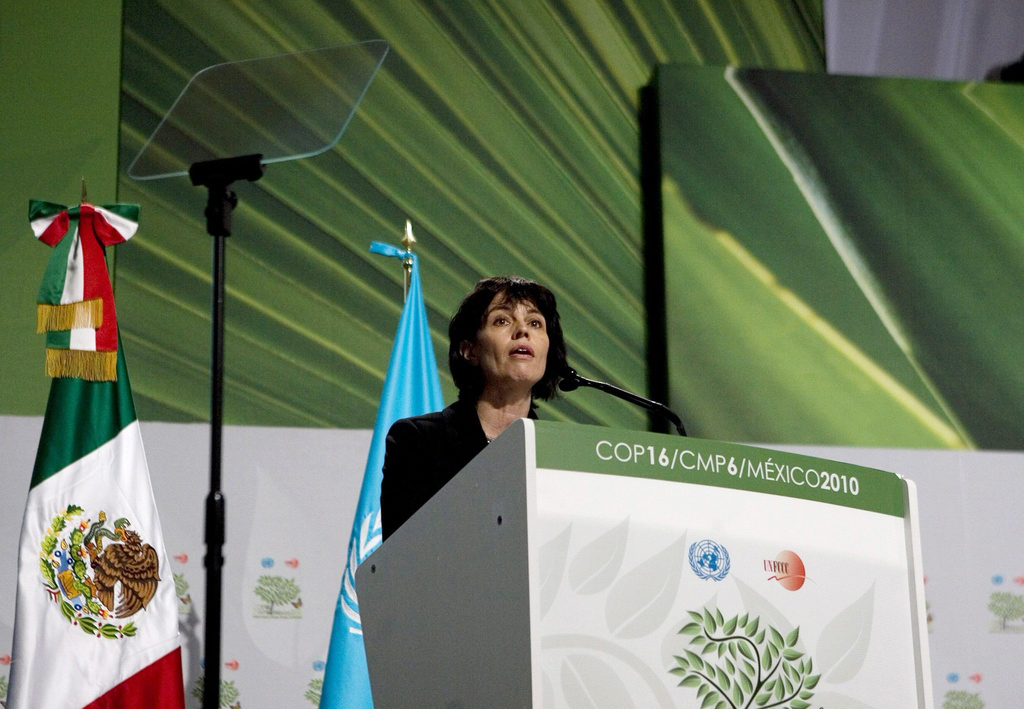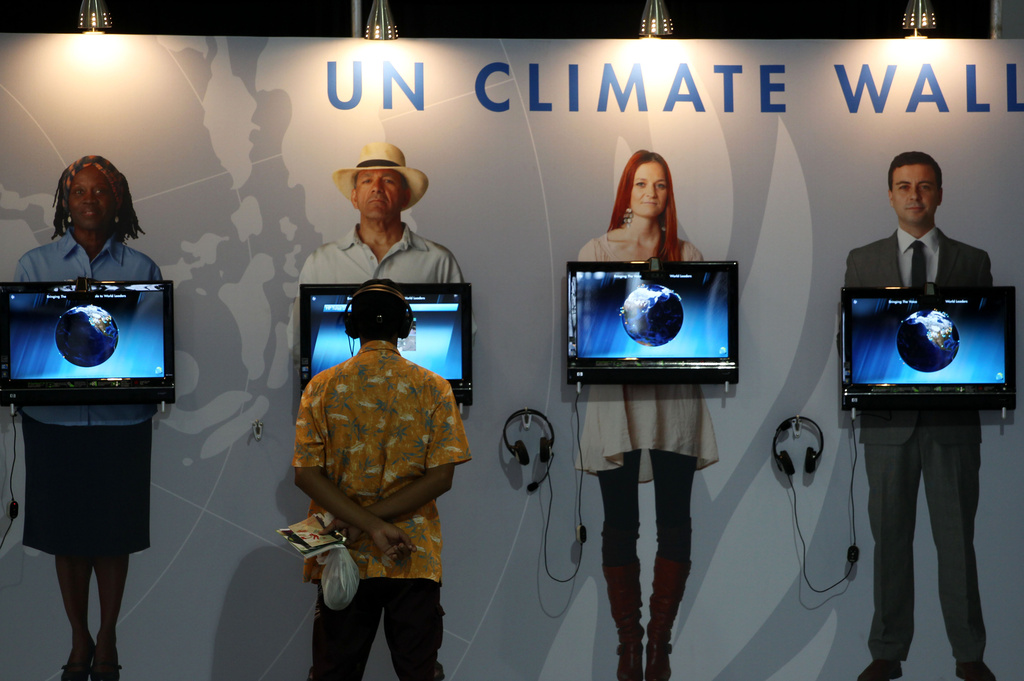Village goes touchy-feely on climate change

A few kilometres away from the plush surroundings of the United Nations climate talks in Cancun, green issues are being dealt with on a rawer level.
A Climate Change Village has been erected just off the main highway running through the city. The dusty, sprawling complex was set up as a fringe centre to promote dialogue among non-governmental organisations, eco businesses and the public during the conference.
While the summit is a frantic talking shop, the village is more about feeling and understanding the issues of climate change.
Visitors enter the village via Mexico in Your Senses, a vibrant exhibition on Mexican identity that was also shown in the country’s pavilion at this year’s Shanghai Expo. It has toured the world and been seen by around ten million people to date.
In the next pavilion, an interactive exhibition on climate change is run by the Papalote Children’s Museum, catering to the bus loads of children arriving at the village every hour on school trips.
Local resident Gonzalo Cetima has been to the exhibition five days in a row because his three-year-old daughter keeps asking to come back.
“It’s great for the kids. Here in Cancun we have nothing like this. I think it’s very important for them to grow up learning how to recycle, all the procedures,” he said, as his daughter played, putting different objects into the correct waste bins.
“But I’m wondering what’s going to happen in ten days, in one week, when this is all over. It’s very important because in 20 years I don’t know what kind of world there will be for my child.”
“Taking part”
It’s a question that a youth forum has been addressing at the village. Around 200 young people from 50 countries have taken part in a five-day conference inside the village’s main tent, drawing up a declaration for action to be handed into the UN summit by the Mexican government.
Their declaration came up with a “three per cent rule”, arguing it would take three per cent of the world’s income to fix climate change problems: They propose adding a three per cent levy onto all consumer products to fund environmental investments and education.
“This is what the Climate Change Village is about, civil society taking part in a subject that concerns the entire world,” said Climate Change Youth Forum organiser Antonio Montano.
One of the people following the youth forum was 22-year-old Mexican university student Samuel Segura, who endured a 16-hour bus trip to get to Cancun.
“I was very interested in what’s going on and to hear the ideas being brought to young people around COP16 [the 16th meeting of the UN Framework Convention on Climate Change], so that’s why I decided to come,” he said. “I have been trying to follow what’s going on at the summit but we are far away from where the negotiations are taking place.”
In developing countries climate change is not a priority and education about the problems is lacking, he says. “People don’t know the current debates about it. As a result there is no consciousness about the big issues we will be facing in ten to 20 years. That should be a warning sign for most people.”
Human rights
Spread out over the rest of the village tent are stands by businesses touting eco wares from solar panels to the latest electric cars, as well as a sampling of projects by non-governmental organisations.
By far the most popular are a stand giving out free organic coffee from the Chiapas region, and the Climate Wall, an HP video installation linking the village to the Moon Palace where the governmental delegations are based. Schoolchildren take turns asking questions of delegates passing by and can read Twitter feeds from the talks.
Outside the tent on Wednesday, Mexican operatic tenor Fernando de la Mora was warming up ahead of the evening concert with the National Symphonic Orchestra.
Free concerts are laid on every night and as evening approaches, the crowds of schoolchildren are replaced by families and couples who browse the village stalls while waiting for the music to start.
As they filed into the concert area on this particular night, the head of Greenpeace International, Kumi Naidoo, was addressing the last seminar of the day. There is a need to understand climate change is a human problem affecting everyone, he told the audience.
“It is the fight for human rights,” he said, adding that it was important to join forces, to mitigate and prevent the effects of climate change.
But there may only be progress when “decent people stand up and say enough is enough”, he warned.
The UN Climate Change Conference runs in Cancun, Mexico, until December 10. The negotiating process revolves around sessions of the signatory parties to the UN Framework Convention on Climate Change (UNFCCC), which meet annually to review how the convention is being implemented. Talks include the issues of adaptation, reducing greenhouse gas emissions, climate finance, and the future of the Kyoto Protocol, which expires in 2012.
The UN Climate Change Conference runs in Cancun, Mexico, until December 10. The negotiating process revolves around sessions of the signatory parties to the UN Framework Convention on Climate Change (UNFCCC), which meet annually to review how the convention is being implemented. Talks include the issues of adaptation, reducing greenhouse gas emissions, climate finance, and the future of the Kyoto Protocol, which expires in 2012.
The Mexican government decided to create the Climate Change Village as a space to promote dialogue related to environmental issues among non-governmental organisations, the private sector and civil society.
The village is located 13km away from the Moon Palace Hotel, the hive of the governmental negotiations.
An estimated 12,000 visitors were expected daily at the village, which is open until Sunday.
The event included the presentation of an award to environmental photographer and filmmaker Yann Arthus-Bertrand for his film “Home”.
Artistic and cultural events were scheduled every night as part of a music festival called “Singing for the Planet”.
Talks on the Framework Convention on Climate Change and the Kyoto Protocol were being broadcast live to the village.
Non-governmental organisations have been holding daily forums on projects related to climate change issues.

In compliance with the JTI standards
More: SWI swissinfo.ch certified by the Journalism Trust Initiative





You can find an overview of ongoing debates with our journalists here. Please join us!
If you want to start a conversation about a topic raised in this article or want to report factual errors, email us at english@swissinfo.ch.